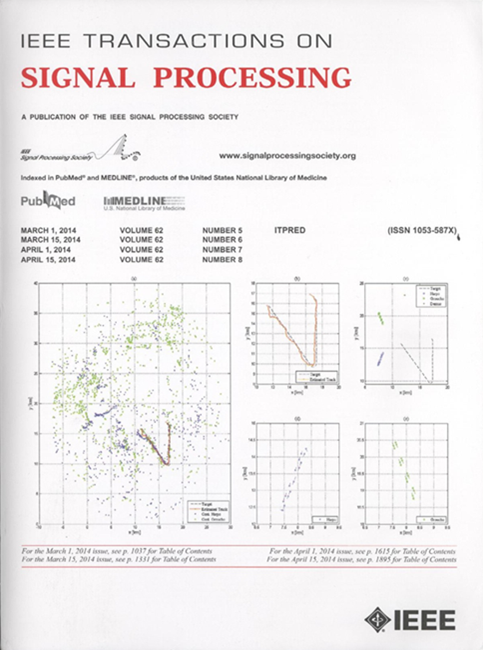Randomized Iterative Algorithms for Distributed Massive MIMO Detection
IF 4.6
2区 工程技术
Q1 ENGINEERING, ELECTRICAL & ELECTRONIC
引用次数: 0
Abstract
Distributed detection over decentralized baseband architectures has emerged as an important problem in the uplink massive MIMO systems. In this paper, the classic Kaczmarz method is fully investigated to facilitate the distributed detection for massive MIMO. First of all, a more general iteration performance result about the traditional randomized block Kaczmarz (RBK) method is derived, which paves the way for conceiving the conditional randomized block Kaczmarz (CRBK) algorithm. By customizing RBK with the concept of conditional sampling, CRBK achieves faster convergence and smaller error bound than RBK. To further exploit the potential of conditional sampling, multi-step conditional randomized block Kaczmarz (MCRBK) algorithm is proposed, which can be readily adopted as a flexible, scalable, low-complexity distributed detection scheme to suit various decentralized baseband architectures in massive MIMO. Moreover, to eliminate the convergence error bound of MCRBK, a novel dynamic step-size mechanism is proposed for the iteration update of MCRBK. Theoretical demonstration shows that the proposed distributed MCRBK detection with the optimized dynamic step-size not only converges exponentially to the solution of linear detection schemes but also enjoys the global convergence to well suit different practical scenarios of massive MIMO.分布式大规模MIMO检测的随机迭代算法
分布式基带体系结构上的分布式检测已成为上行海量MIMO系统中的一个重要问题。本文充分研究了经典的Kaczmarz方法,以促进大规模MIMO的分布式检测。首先,推导了传统随机块Kaczmarz (RBK)方法的更一般的迭代性能结果,为条件随机块Kaczmarz (CRBK)算法的构想奠定了基础。CRBK采用条件采样的概念对RBK进行定制,实现了比RBK更快的收敛速度和更小的误差界。为了进一步挖掘条件采样的潜力,提出了多步条件随机块Kaczmarz (MCRBK)算法,该算法可以作为一种灵活、可扩展、低复杂度的分布式检测方案,适用于大规模MIMO中各种分散基带架构。此外,为了消除MCRBK的收敛误差界,提出了一种新的动态步长机制用于MCRBK的迭代更新。理论论证表明,优化后的动态步长分布MCRBK检测不仅能指数收敛于线性检测方案的解,而且具有全局收敛性,能够很好地适应大规模MIMO的不同实际场景。
本文章由计算机程序翻译,如有差异,请以英文原文为准。
求助全文
约1分钟内获得全文
求助全文
来源期刊

IEEE Transactions on Signal Processing
工程技术-工程:电子与电气
CiteScore
11.20
自引率
9.30%
发文量
310
审稿时长
3.0 months
期刊介绍:
The IEEE Transactions on Signal Processing covers novel theory, algorithms, performance analyses and applications of techniques for the processing, understanding, learning, retrieval, mining, and extraction of information from signals. The term “signal” includes, among others, audio, video, speech, image, communication, geophysical, sonar, radar, medical and musical signals. Examples of topics of interest include, but are not limited to, information processing and the theory and application of filtering, coding, transmitting, estimating, detecting, analyzing, recognizing, synthesizing, recording, and reproducing signals.
 求助内容:
求助内容: 应助结果提醒方式:
应助结果提醒方式:


